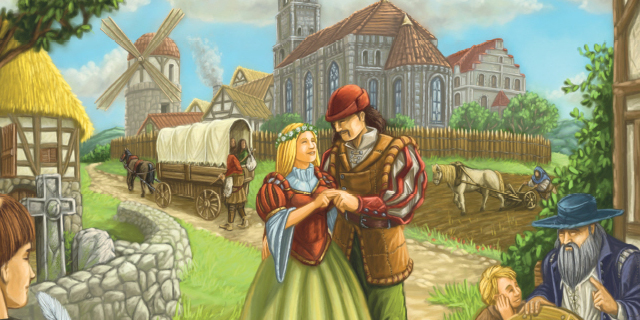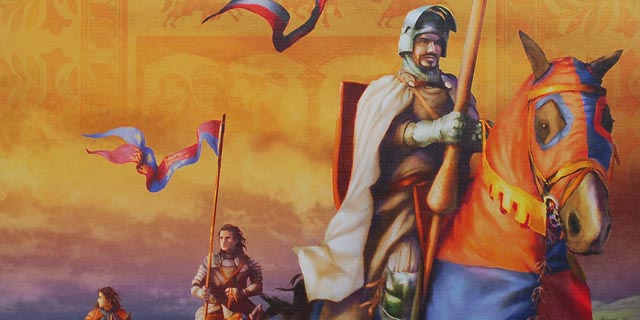
When we last left our heroes, the Sentinels of the Mulitverse, I made a comment that the team at Greater Than Games had recently started what turned out to be a crazily well-funded Kickstarter for the next expansion and a revised edition of the base set. I also said that stuff was scheduled to arrive in August. Well, typhoons around China and US Customs delayed that about a month, but the Sentinels could not be stopped and now both Enhanced Edition and Infernal Relics are loose upon the world. The timing actually turned out to be quite serendipitous, since as I write this, the disc release of The Avengers has just arrived (and I actually have it on in the background right now, which is only a mild distraction), so everyone should be in a superhero team-up kind of mood anyway. READ MORE

Inka and Markus Brand’s Village tells the tale of up to four generations of families in a small medieval village. Starting with four family members (and one coin), each player will have to manage actions, resources, and time itself as they attempt to write their own history in the village Chronicle. New family members can be added along the way, which is good since every one of your starting meeples will most likely have died before the game has run its course.
Yes, died. But I’ll get to that in a minute. READ MORE

I do my best to not bring my Magic: the Gathering experience to this space. For one thing, the barrier to entry is so immense that they have actually (eventually) designed an entirely separate (video) game just to introduce new players to how Magic works, the latest in several attempts to make this process easier over the game’s nearly twenty-year history. Then there’s the commitment factor, especially when it comes to acquiring chase rares to make your deck as competitive as it can be.
Even playing casually demands more of an investment (in both time and money) than I feel is appropriate for this column. That said, there is definitely an overlap between collectible card game (CCG) players and social boardgamers, and that overlap is where Fantasy Flight Games and their “Living Card Game” (LCG) model come in. READ MORE

The games I cover in this column are for social gaming, generally for groups from three to six, and even sometimes up to twelve. Occasionally some of these accommodate two players, and a few are for one-on-one play exclusively, but what do you do while you’re waiting for your friends to show up? Some variant of solitaire is always an option, I guess, but designer Shadi Torbey has another option: Onirim (published by Z-Man Games). READ MORE

I’ve covered a lot of worker-placement games in this column. Almost all of them use the mechanic of “first come, first served,” where placing one of your guys on a space will prevent others from doing so. Lancaster (designed by Matthias Cramer and published by Queen Games) twists this by giving each knight a strength of one to four, and letting stronger knights oust weaker ones for control of a given space. It’s not the only innovation Lancaster brings to the game table, but it is certainly the game’s defining feature. READ MORE
























